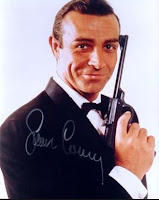One day many years ago as my undergraduate days wound down I
stopped by the university bookstore for a reason that escapes my memory. One of
my roommates who was also a close friend was in the store with his visiting
mother. He introduced me and the three of us had a brief, pleasant but
otherwise unmemorable interaction. Two days later I passed by mother and son in
a nearby restaurant. Again, we chatted briefly about nothing in particular.
The next day my roommate, who happened to be a Native
American from the Navajo nation, commented: “my mom really liked you”. “Do tell”,
I responded. His reply: “well for one thing she recognized you in the
restaurant, yesterday”. “What does that mean?” was my less than delicate reply.
“Well”, he said with a characteristic smile, “normally she can’t tell one white
person from another but she picked you out immediately, she even remembered
your name”.
After a college career as close friends, I knew when make
light of a comment and when not to. Although my mind said: “that is the dumbest
thing I have ever heard”; my vocal cords uttered: “Well, I am honored”. My mind
grappled with the idea that to a middle aged lady from the “Four Corners” area
of the US, maybe all white people did look alike. Over the next two
decades as I moved to various parts of America and finally to Asia, the comment
of my roommate’s mom became a touchstone for me regarding the fact that to
understand people of different backgrounds I needed to try to view things
through the eyes I was looking into rather than my own. Despite my best
intentions, given my small town America upbringing it was still hard for
me to appreciate my status as a minority in the global scheme of things. And
then came the “James Bond” syndrome.
 |
| the real deal |
During my first few weeks living in Asia, I made a trip to
Shenzhen, China. I was there to meet a new and important customer. The
afternoon meeting was followed by the customary dinner. I was the only
non-Asian at a table for ten. As one course was consumed and another came, I
noticed that our host, the lady who owned the company, was looking at me and
joking with her seatmates across the table. Not understanding the language, I wondered if I had somehow
breached etiquette. Finally the mystery was translated: “we have been
discussing how much you look like James Bond.” Being a long time Sean Connery
fan, I wanted to confirm exactly which James Bond I allegedly looked like. “Which
one?” I asked – generating an awkward “lost in translation” moment. Of course, had I drawn upon the lesson from my
roommate’s mother I would have realized that “all James Bonds must look alike”.
All I got for an answer that night was: “yes, yes – you James Bond, really
James Bond, ha ha ha”.
A couple weeks later my younger (seven year old) daughter
came home after a visit to a new friend’s house. After a brief report on her
day she told me that her friend’s mom “thinks you look just like James Bond”.
Still hoping to be the Sean Connery version of 007 rather than Timothy Dalton
version, I foolishly inquired “which one?” A quizzical look was all I got in
return. My daughter was a “Star Wars” fan.
 |
| Not James, Bill or George circa 1994 |
The fun was just beginning. It seemed that if “all white
people look alike”; I could be anyone and apparently I was. Traveling with a colleague a few weeks later I
was stopped in Taiwan and asked if I was Mel Gibson. Ironically I was traveling
with the same person a few weeks later and was stopped in Buenos Aires and
asked “the Mel Gibson” question. Quite certain, I bore no resemblance to Sean
Connery or Mel Gibson; I became more and more convinced that depending on the city, I really could
be anyone - assuming they were white and sufficiently famous. Travel was more exciting since I was never sure who I would be when I
landed. Months passed, I was spotted as James Bond in China twice – in Chengdu
and Shanghai. I was less successful in Tokyo – I was spotted there as Tony Curtis (I
was pretty sure he was dead) and “that pro golfer”. Occasionally I was simply
asked if I was somebody famous. In Japan, I would respond that: “I am nobody
famous” which given the confusion a negative, positive response generates with Japanese
seemed only to confirm, incorrectly, that I was indeed famous.
I realize many parents of my generation tell their kids “you
can grow up to be President”. My mom never told me that but I was to find out
as my hair grayed that I could look - to the Asian eye anyway, like Bill Clinton or George W. Bush and sometimes
both in the same week. Occasionally it seemed I went from looking like them to
being them. Over the years I stayed in the same hotels as both Presidents Clinton
and Bush did in Tokyo and Singapore. One time as I finished a run in Singapore,
a local excitedly spotted me as “43”. President Bush was in town during a
stopover on the way to an APEC meeting so between that fact and perhaps being
legally blind (he was wearing glasses), I could see how the person could make the mistake. I am not sure
where he thought the secret service detail was.
Now that I am spending most of my time in North Carolina, I
have gotten used to being my bland, non-famous self but on my regular trips to
Asia, I know there is a chance I may morph into someone else, briefly. I wonder
if my roommate’s mother would recognize me now.
